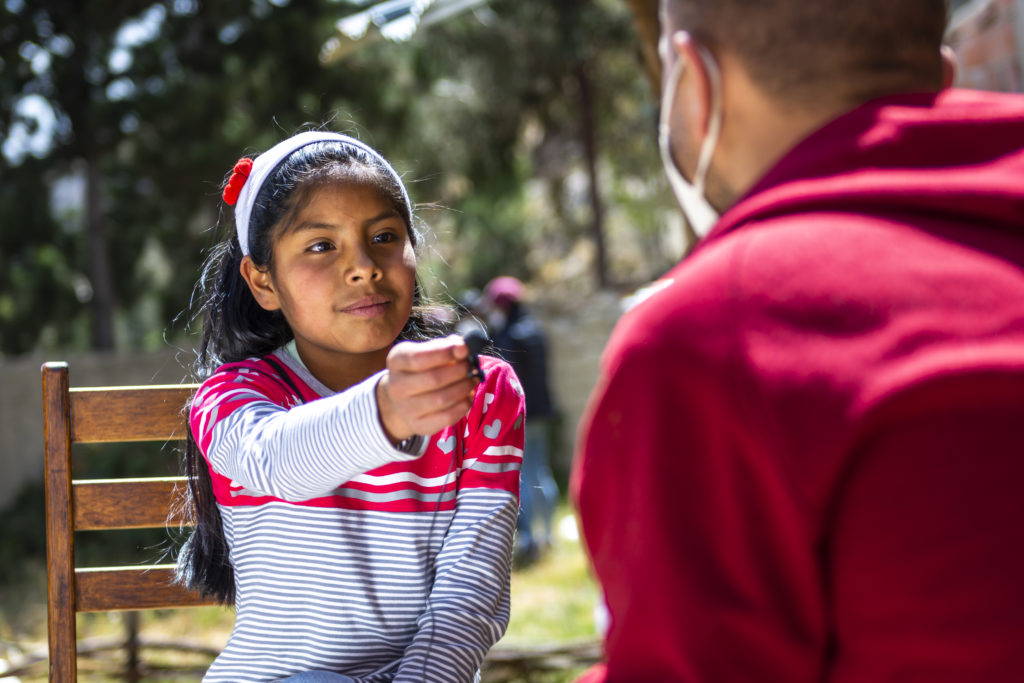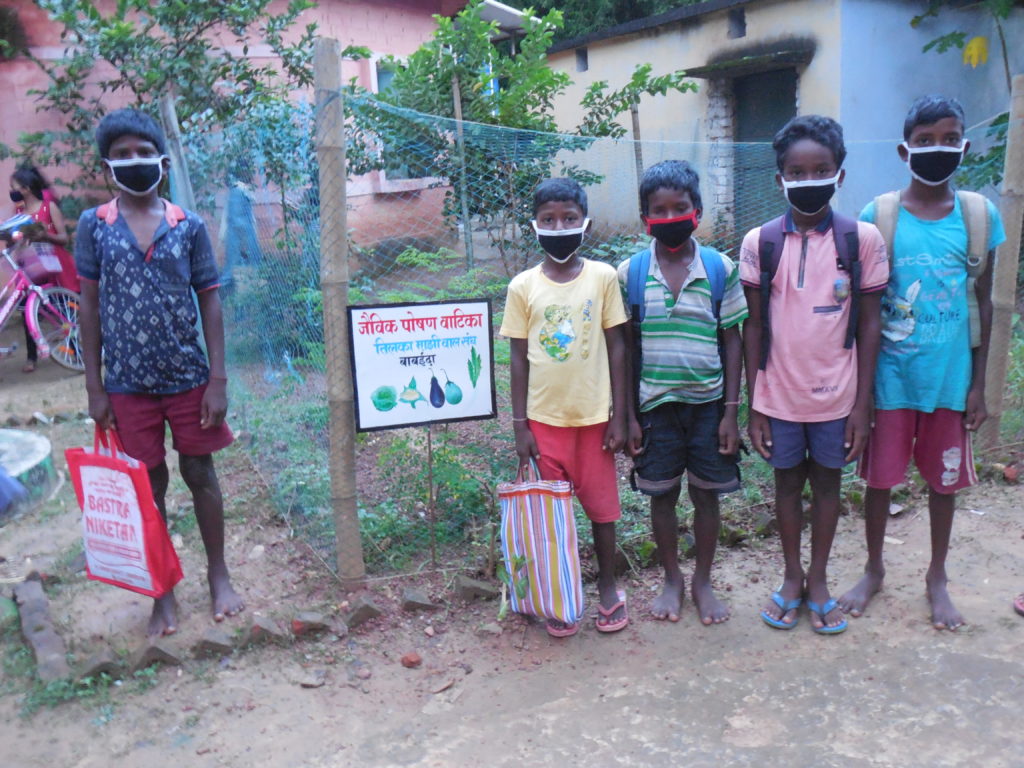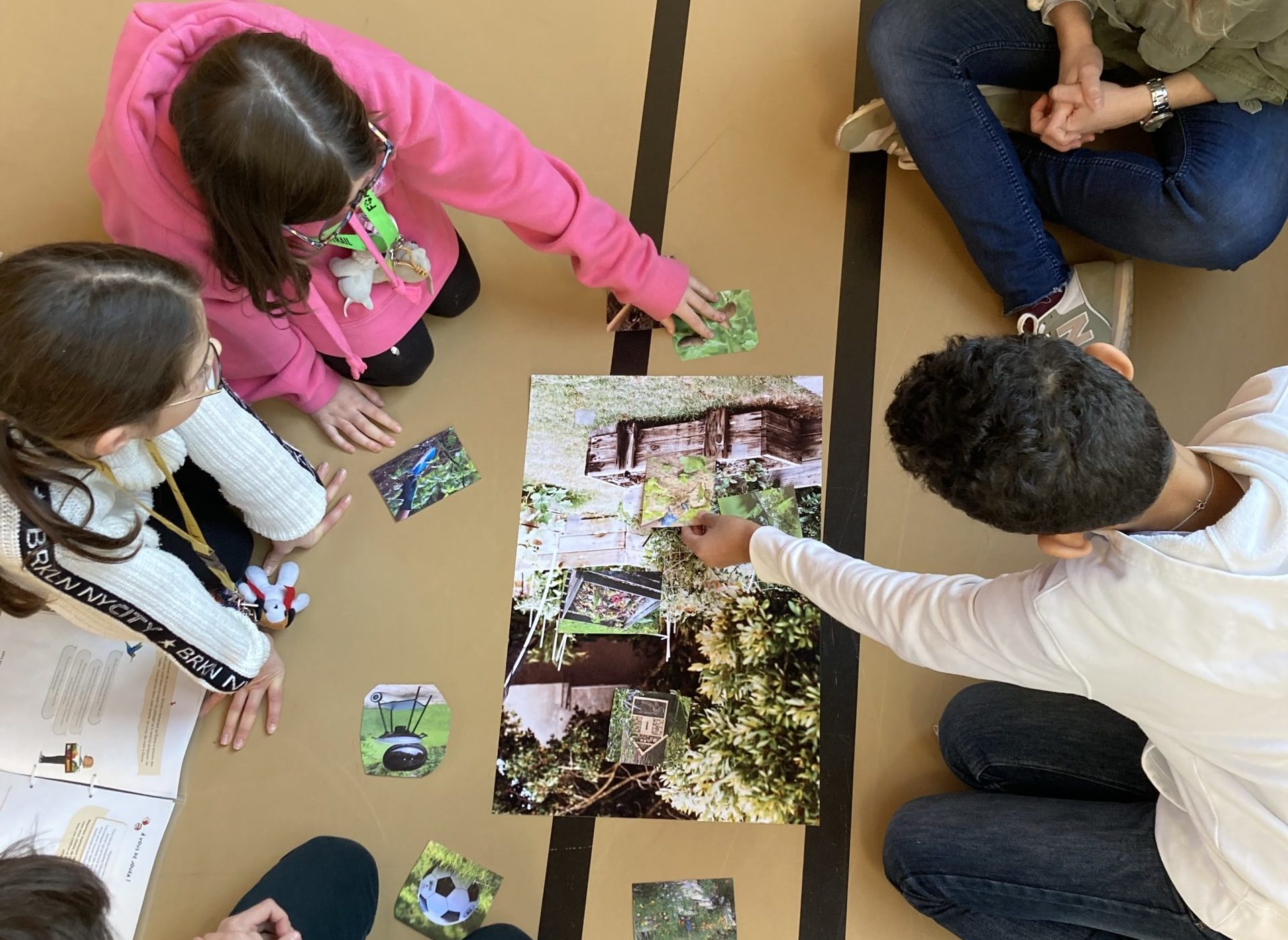In the countries of action of Terre des Hommes Switzerland, they are mobilising for the protection of the environment and resilience in the face of climate change. As agents of change, they participate actively in the construction of sustainable societies. In Switzerland as well as in 9 countries abroad, TdH Switzerland and its field partners have developed programmes and projects related to the environment. All these initiatives are essential to enable children and young people to grow up in a world where all their rights are protected and respected, including the right to live in a healthy environment. Here are some examples.
Robin des Watts and Colibri Project : everyone can make a difference
Enlarging the school garden and installing beehives, using QR codes to raise awareness of recycling, promoting urban vegetable gardens, organising lake and forest clean-up days, distributing water bottles to pupils: these were the proposals made by children of 7 and 8 years old from a school in Cully (VD) during a workshop devised by the Youth Movement of TdH Switzerland (JEDDE and Terre des Hommes Suisse Unige). For Andrea Burgos, in charge of the Robin des Watts project for TdH Switzerland: “We are delighted to see the involvement of young people in the creation of a concrete environmental project in their community. They are the real driving force behind this project called “Projet Colibri”. This is remarkable. There is a real satisfaction for the children to be able to imagine projects and propose solutions to fight against climate change. The next step is to meet with the city authorities and the sustainable development commission, present the different projects and validate the support of the municipality in the realisation of one of them. SWITZERLAND Robin des Watts and the Hummingbird Project: everyone can make a difference in sustainable societies. In Switzerland as well as in 9 countries abroad, TdH Switzerland and its field partners have developed programmes and projects related to the environment. All these initiatives are essential to enable children and young people to grow up in a world where all their rights are protected and respected, including the right to live in a healthy environment.

Bolivia · Child Eco-journalists: The voice of our planet
“Old mattresses, broken glass, debris, dead dogs, plastics galore are strewn along the banks of the Chuguillas River, an hour outside the city of Sucre. The river has become a dumping ground for the people who live in the country’s capital, despite the “no dumping” signs.” Emanuel Nunez Romero is an eco-journalist who draws attention to the preservation of the river in his municipality, to the contamination it is suffering. The lack of a waste management and recycling policy has a direct impact on the quality of life of the inhabitants of this region. He is only 11 years old and yet, thanks to the “Child Eco-journalists” project, he is keen to draw attention to these problems, these images of degradation to which so few pay attention.
Each report, compiled in a national magazine, leads children to reflect on a question, a problem or a proposal. Witnesses and actors, they relate, through their words and images, good or bad environmental practices of everyday life. They talk about what affects them directly, can harm their health, be the source of conflicts or on the contrary of elements and discoveries that bring joy and hope.

India · Environmental education to reduce children’s vulnerability

India · Environmental education to reduce children’s vulnerability
After two years of crisis due to COVID, India faced in 2022 an unprecedented heat wave affecting the whole country. Power cuts, school closures, severe drought, loss of crops, increased grain prices: the negative impact of global warming is a reality in this country where the most vulnerable are particularly affected. As direct witnesses of the consequences on their daily lives, the young people supported by TdH Switzerland are committed to developing strategies and actions to strengthen their resilience. Hira Turdu, 13, is one of them. Thanks to the children’s clubs and workshops on climate change, she has learned about the harmful effects of climate change on human life and health, and the harmful effects of chemical fertilizers used in agriculture on the environment. Armed with this knowledge, she mobilised with other young people in her village to organise community awareness rallies and a poster campaign on environmental protection. She was also able to convince her parents to develop a 37m2 organic garden. She comments with great satisfaction: “Oh, such tasty vegetables that I grew on my own land and ate safely. I learnt how to use fallow land and grow vegetables organically at minimal cost and even earned INR 3000 by selling surplus vegetables.”

